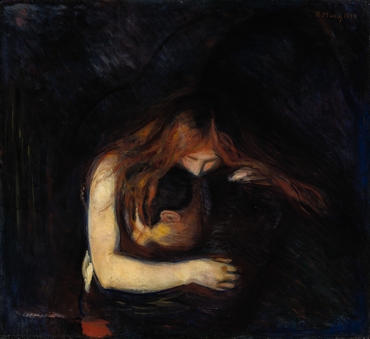
Duparc was born in 1848, he belongs to Fauré’s generation, who was born in 1845; both studied with César Franck, they became friends and are considered part of the first generation of mélodie composers. Duparc was the son of an old and noble family; their wealthy social status allowed him to complete his musical education by travelling often to Germany, where he met Liszt and Wagner, acquaintances who greatly influenced his music. He published his first songs at twenty and immediately, he won the audience’s admiration and the respect of colleagues and critics. In 1870, in the pick of his success, the first symptoms of a nervous disease appeared and worsened over the years. He first suffered from agoraphobia and later somnambulism and balance problems; gradually, he lost mobility in his legs and also lost vision until he became blind (I’m not certain if it was as a result of his nervous disease or it would have happened anyway). Before being forty, he experienced a personal and spiritual crisis; he stopped composing, resigned as a member of the Société Nationale de Musique, which he had co-founded, and withdrew from public life.
He was a perfectionist and destroyed almost his whole work. He just kept thirteen songs, published under the title of Treize mélodies, and some few more pieces of work. He died in 1933 and for nearly fifty years he didn't compose anything; he only agreed to orchestrate some of his songs at his friend’s insistence, the conductor Ernest Ansermet. Besides these thirteen melodies, four more were preserved because someone else kept the scores; Romance of Mignon is found among these.
Chanson triste is one of the first mélodies written by Duparc, published in 1868 as a part of Cinq melodies, Op. 2 (and orchestrated in 1911), from which he also preserved Soupir. These five songs were inspired by Ellie Mac Swiney, a young Scottish woman he was engaged to without the consent of his father. They couldn’t get married until three years later, when Monsieur Duparc would be sure that his son was really in love with Ellie (don't ask me why Henri, a man, couldn’t get married to whoever he chose. I can only think of two reasons: a great respect for his father and many generations of ancestors who watched him from their portraits or the possibility of him being disinherited). Duparc and Ellie were married for fifty-two years, she died a few months later than he did. I don't know how was their life together but I hope that the Chanson triste words kept their meaning for a long, long time. The words, by the way, are by the symbolist poet Jean Lahor (pseudonym of the doctor Henri Cazalis), a poet that we find in other songs by Duparc, Chausson or Hahn.
When we listen to Chanson triste, as when we listen to Invitation au voyage or Phidylé, we understand why Duparc is, despite the brevity of his work, one of the most important mélodie composers. It's a tenderly passionate song, full of lyricism; The score character is indicated as “Lent, avec un sentiment tendre et intime” (Slow, with an tender, intimate feeling) and also indicates some words as "très doux" (very sweet); at "Mon amour" in the second verse, for instance. It's a gorgeous song, full of romantic spirit, that we're listening performed by Jonas Kaufmann and Helmut Deutsch. Now, Chanson triste won't be my earworm anymore but, who knows, maybe it becomes yours.
Dans ton coeur dort un clair de lune,
Un doux clair de lune d’été,
Et pour fuir la vie importune,
Je me noierai dans ta clarté.
J’oublierai les douleurs passées,
Mon amour, quand tu berceras
Mon triste coeur et mes pensées
Dans le calme aimant de tes bras.
Tu prendras ma tête malade,
Oh! quelquefois, sur tes genoux,
Et lui diras une ballade
Qui semblera parler de nous;
Et dans tes yeux pleins de tristesse,
Dans tes yeux alors je boirai
Tant de baisers et de tendresses
Que peut-être je guérirai.
In your heart moonlight lies dormant,
A gentle moonlight of summer;
And to flee the troubles of life,
I will drown myself in your brightness.
I will forget past griefs,
My love, when you rock
My unhappy heart and my thoughts
In the loving tranquility of your arms.
You will lay my anxious head,
Oh! - sometimes- upon your lap,
And you will utter to it a ballad
That will seem to speak of us;
And from your eyes so full of sadness,
From your eyes I will then drink
So many kisses and so much tenderness
That perhaps at last I will be healed.












